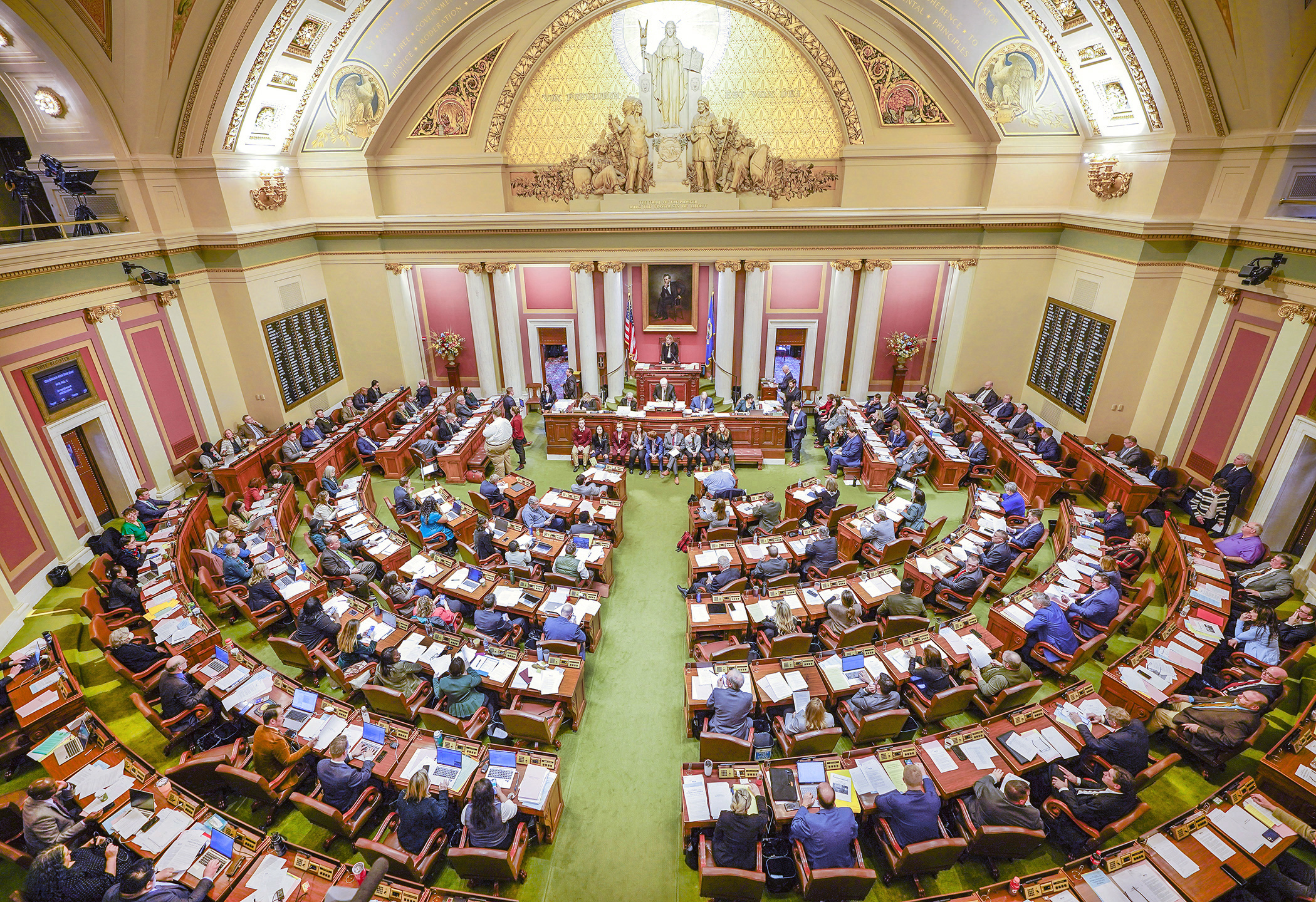House gets bonding bill over the line, passes $1.5 billion capital investment package

Bonding bills and the infrastructure they pay for are about more than spreadsheets, bricks and mortar, said supporters of a $1.5 billion general obligation bonding package. They’re about strengthening communities, and hundreds of projects across the state have gone unfunded for far too long.
Rep. Fue Lee (DFL-Mpls) sponsors HF669, passed by the House, as amended, 91-43 Monday evening, receiving 10 votes more than the 60% super-majority required to pass a general obligation bonding bill.
“The work of a bipartisan infrastructure bill never stopped, and today we are one step closer to delivering on the investments communities across the state have been urgently waiting for,” he said in a statement. “These investments take care of what we already have while lifting up communities too often left behind when it comes to capital investment. Whether it’s a road they’ll drive on, water they’ll drink, a college they’ll attend, a trail they’ll walk, or a home they’ll live in - this bill isn’t just for today’s Minnesotans, but tomorrows. It’s time to pass the business of 2022 so we can move onto the work of 2023.”
The money would be used for projects such as road and bridge repairs, preservation of state buildings, and needed repairs to wastewater treatment plants.
There are people in our state who not only can’t drink the water, they can’t even bathe in it. They are waiting for this bill, said Rep. Nolan West (R-Blaine), who called the proposal fair in terms of party and geography.
But Rep. Pat Garofalo (R-Farmington) and other Republicans said the bill would waste hundreds of millions of dollars via paying interest on the bonds rather than using the state’s historic $17.5 billion budget surplus. He urged his colleagues to fund the projects through cash rather than bonds.
House Majority Leader Jamie Long (DFL-Mpls) said bonding would allow the Legislature to fund other priorities and every generation would be paying for intergenerational projects.
While the $1.5 billion would represent one of the largest investments the state’s made in infrastructure, it is well short of the $3 billion proposed by Gov. Tim Walz and more than $6 billion in requests received from around the state.
The bill approved by the House Capital Investment Committee set aside money for projects proposed by the Republican caucus, which were added by an amendment from Rep. Dean Urdahl (R-Grove City).
Another successfully added amendment would use $90 million from the proceeds of bond sales to fund 21 different projects. That includes water and wastewater projects in St. Michael, South Haven, Rice Lake, Morristown, Owatonna, Monticello and Albert Lea.
Some of the largest appropriations included in the bill are:
- $235.39 million for water and wastewater projects;
- $174 million for the Department of Natural Resources for things such as accessibility improvements, building repairs, trail maintenance, asset preservation and flood mitigation;
- $151 million for local roads and bridges; and
- $134.75 million for higher education asset preservation and other builds and renovations in the Minnesota State system.
Specific projects include:
- $92.6 million to renovate and add to the University of Minnesota’s Fraser Hall for an undergraduate chemistry teaching laboratory on the Twin Cities campus;
- $77.77 million for upgrades at the Hastings Veterans Home campus;
- $72 million for construction of arterial bus rapid transit routes; and
- $24.7 million for renovations at the Department of Military Affairs Rosemount Readiness Center.
The bill now goes to the Senate, where Republican support and passage is far from assured.
“This is our leverage,” Senate Minority Leader Mark Johnson (R-East Grand Forks) said at a press conference earlier in the day. And Sen. Karin Housley (R-Stillwater) said the bill would be “dead on arrival” without any tax cuts in return.
[MORE: Watch the Senate Republican news conference]
However, House Speaker Melissa Hortman (DFL-Brooklyn Park) said bonding bills should rise and fall on their own merits, not tied to other issues.
Related Articles
Search Session Daily
Advanced Search OptionsPriority Dailies
Speaker Emerita Melissa Hortman, husband killed in attack
By HPIS Staff House Speaker Emerita Melissa Hortman (DFL-Brooklyn Park) and her husband, Mark, were fatally shot in their home early Saturday morning.
Gov. Tim Walz announced the news dur...
House Speaker Emerita Melissa Hortman (DFL-Brooklyn Park) and her husband, Mark, were fatally shot in their home early Saturday morning.
Gov. Tim Walz announced the news dur...
Lawmakers deliver budget bills to governor's desk in one-day special session
By Mike Cook About that talk of needing all 21 hours left in a legislative day to complete a special session?
House members were more than up to the challenge Monday. Beginning at 10 a.m...
About that talk of needing all 21 hours left in a legislative day to complete a special session?
House members were more than up to the challenge Monday. Beginning at 10 a.m...